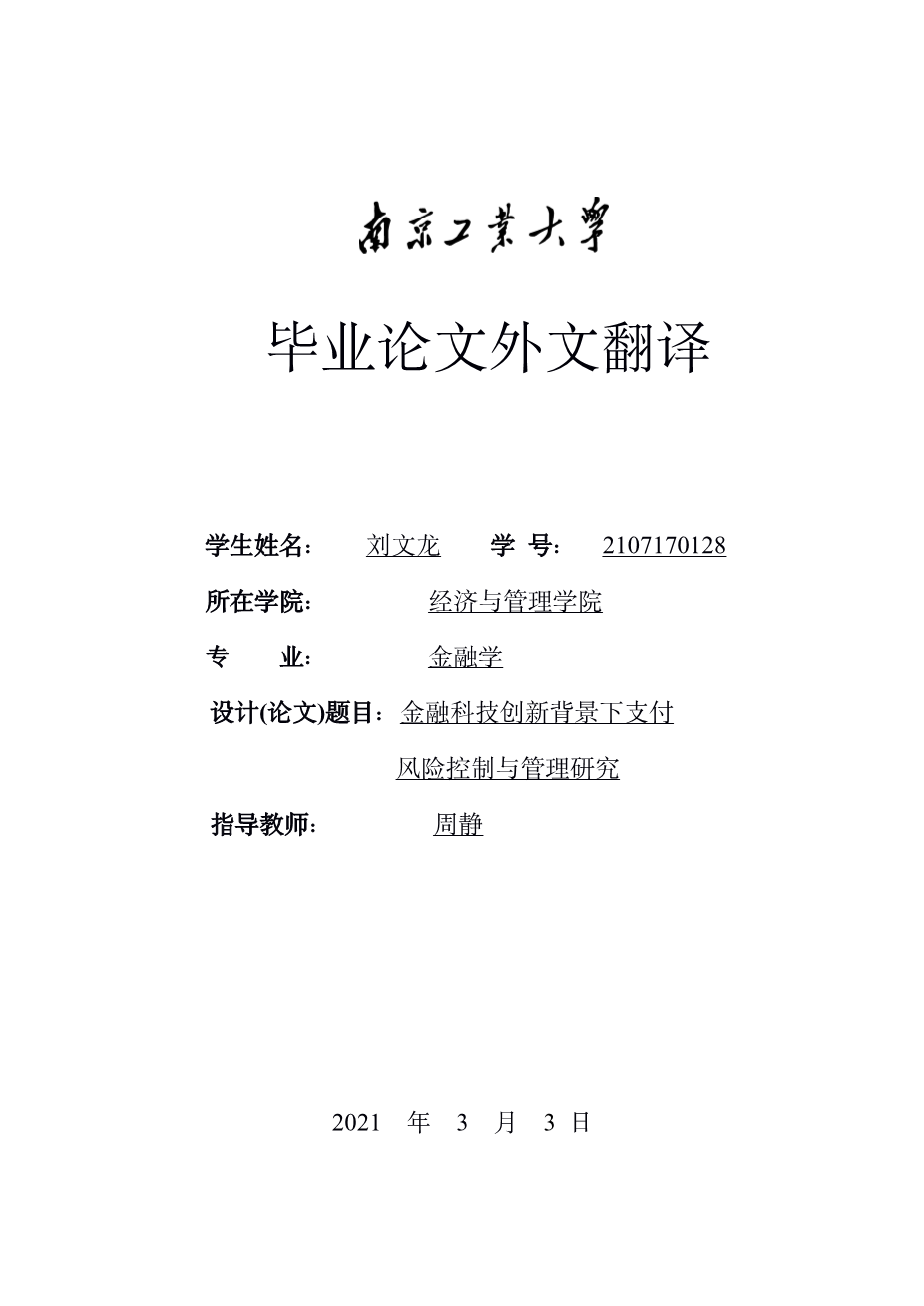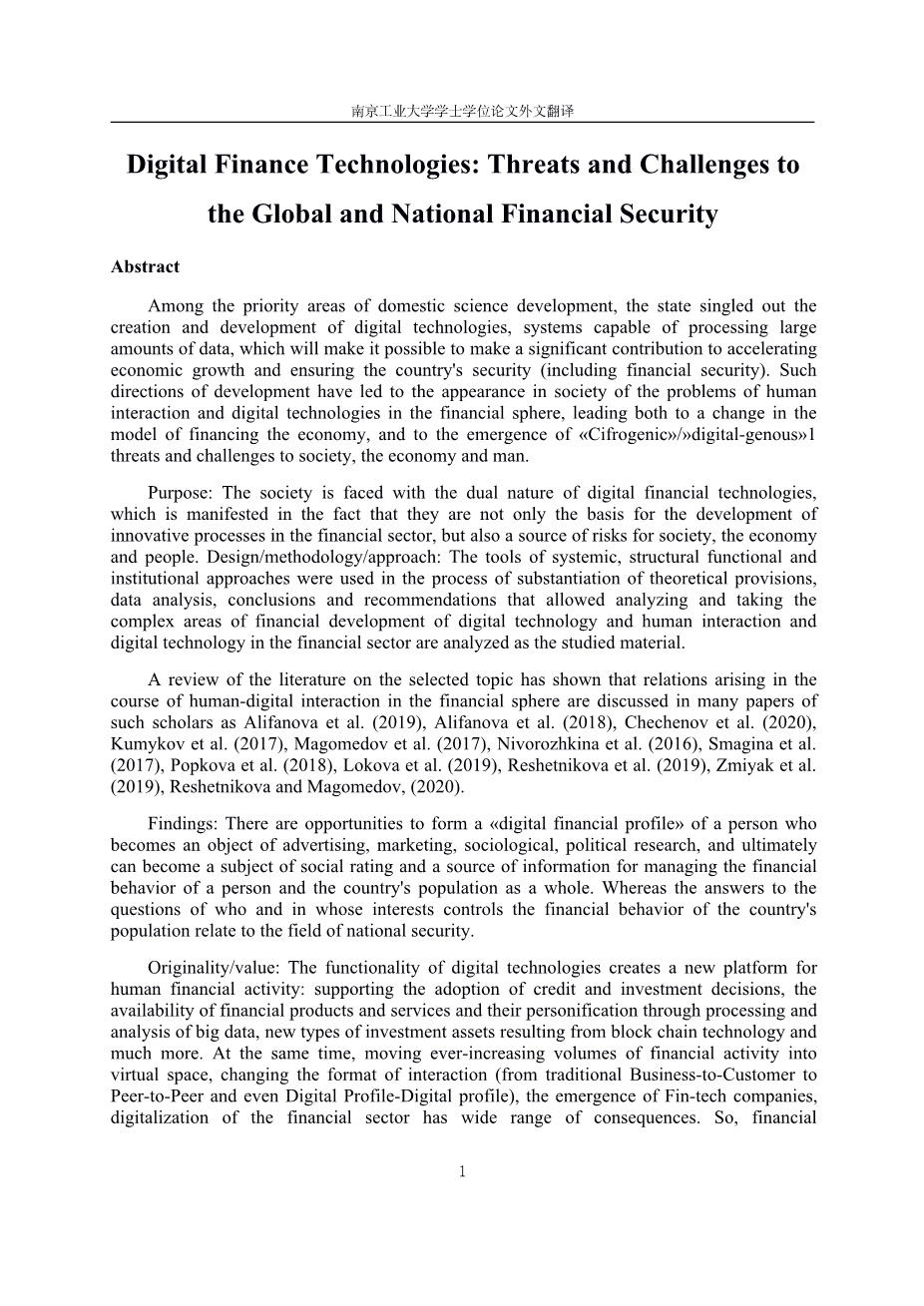Digital Finance Technologies: Threats and Challenges to the Global and National Financial Security
Abstract
Among the priority areas of domestic science development, the state singled out the creation and development of digital technologies, systems capable of processing large amounts of data, which will make it possible to make a significant contribution to accelerating economic growth and ensuring the countrys security (including financial security). Such directions of development have led to the appearance in society of the problems of human interaction and digital technologies in the financial sphere, leading both to a change in the model of financing the economy, and to the emergence of laquo;Cifrogenicraquo;/raquo;digital-genousraquo;1 threats and challenges to society, the economy and man.
Purpose: The society is faced with the dual nature of digital financial technologies, which is manifested in the fact that they are not only the basis for the development of innovative processes in the financial sector, but also a source of risks for society, the economy and people. Design/methodology/approach: The tools of systemic, structural functional and institutional approaches were used in the process of substantiation of theoretical provisions, data analysis, conclusions and recommendations that allowed analyzing and taking the complex areas of financial development of digital technology and human interaction and digital technology in the financial sector are analyzed as the studied material.
A review of the literature on the selected topic has shown that relations arising in the course of human-digital interaction in the financial sphere are discussed in many papers of such scholars as Alifanova et al. (2019), Alifanova et al. (2018), Chechenov et al. (2020), Kumykov et al. (2017), Magomedov et al. (2017), Nivorozhkina et al. (2016), Smagina et al. (2017), Popkova et al. (2018), Lokova et al. (2019), Reshetnikova et al. (2019), Zmiyak et al. (2019), Reshetnikova and Magomedov, (2020).
Findings: There are opportunities to form a laquo;digital financial profileraquo; of a person who becomes an object of advertising, marketing, sociological, political research, and ultimately can become a subject of social rating and a source of information for managing the financial behavior of a person and the countrys population as a whole. Whereas the answers to the questions of who and in whose interests controls the financial behavior of the countrys population relate to the field of national security.
Originality/value: The functionality of digital technologies creates a new platform for human financial activity: supporting the adoption of credit and investment decisions, the availability of financial products and services and their personification through processing and analysis of big data, new types of investment assets resulting from block chain technology and much more. At the same time, moving ever-increasing volumes of financial activity into virtual space, changing the format of interaction (from traditional Business-to-Customer to Peer-to-Peer and even Digital Profile-Digital profile), the emergence of Fin-tech companies, digitalization of the financial sector has wide range of consequences. So, financial organizations no longer interact with a person, but with his “digital profile”, with a psychological-digital portrait.
Paper type Research paper
1. Introduction
In the modern world, social philosophy, sociology and other areas of humanitarian knowledge are constantly looking for a balance between the attractive prospects of transforming social reality under the influence of technology and the risks of manipulating a personrsquo;s consciousness and his behavior in a society of mass communications and big data. A separate area of this scientific problem is the interaction of man and digital technologies in the financial sector, leading to a change in the model of financing the economy.
This increases the relevance of solving the problem of human-digital interaction in the financial sector. On the one hand, the functionality of digital technologies creates a new platform for human financial activity (including new types of investment assets resulting from block chain technology, the availability of financial products and services and their personification through the processing and analysis of big data, etc.) but, on the other hand, moving more and more financial activity into virtual space, changing the format of interaction (from traditional Business-to-Customer to Peer-to-Peer and even Digital Profile-Digital profile), The development of Fintech companies, digitalization of the financial sector has a wide range of consequences. For example, the formation of a “digital financial profile” of a person, which ultimately can become the subject of social rating and a source of information for managing the financial behavior of a person and the countrys population as a whole. In turn, the answers to the questions of who and in whose interests controls the financial behavior of the countrys population relate to the field of national security.
From a scientific point of view, an understanding of the duality of digital financial technologies is required: as the basis for the development of innovative processes in the financial sphere and as a source of risks for society, the economy and man. Scientifically based decisions are needed to identify laquo;Cifrogenicraquo;/ laquo;d
剩余内容已隐藏,支付完成后下载完整资料


英语译文共 21 页,剩余内容已隐藏,支付完成后下载完整资料
资料编号:[260569],资料为PDF文档或Word文档,PDF文档可免费转换为Word


